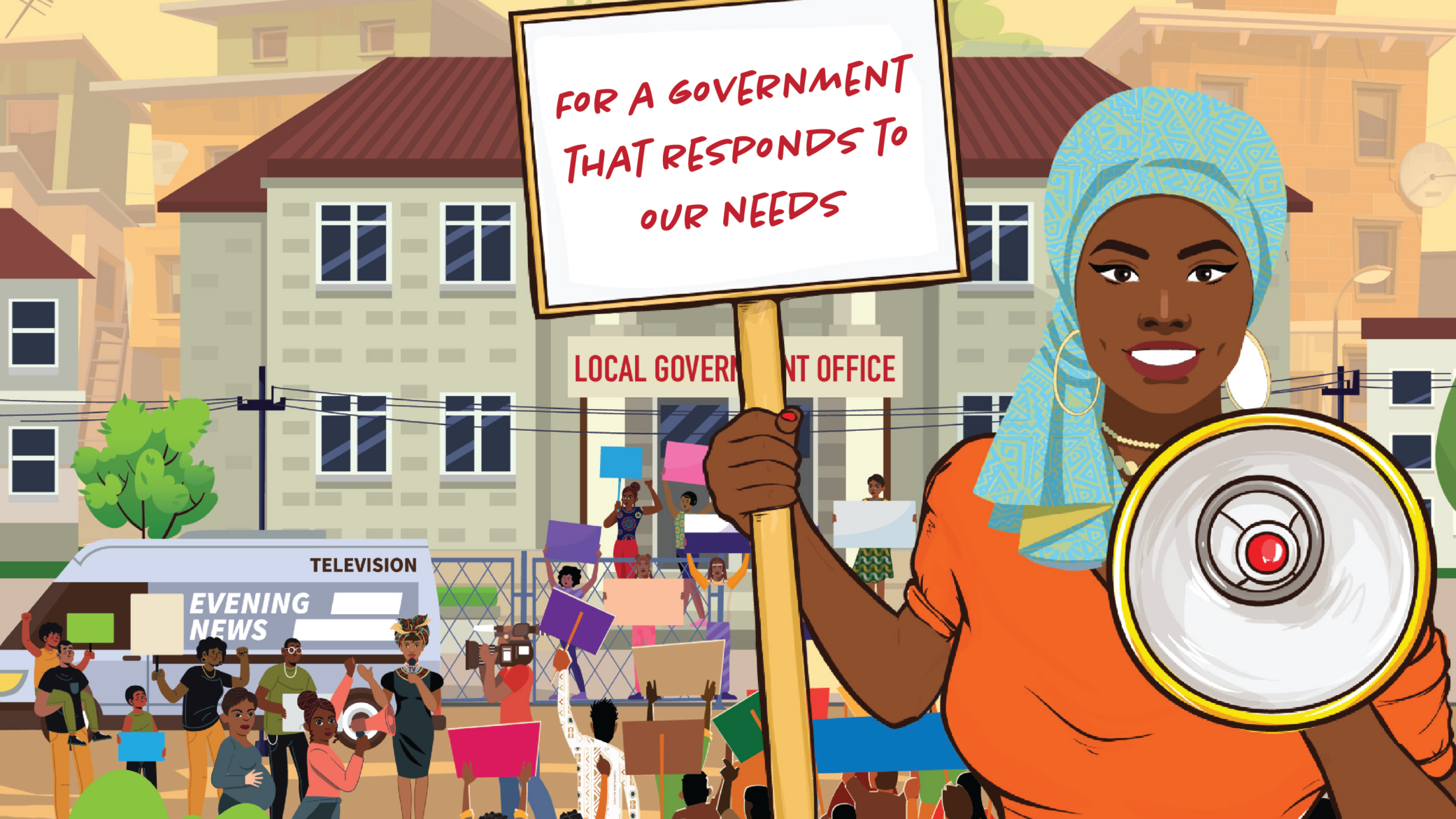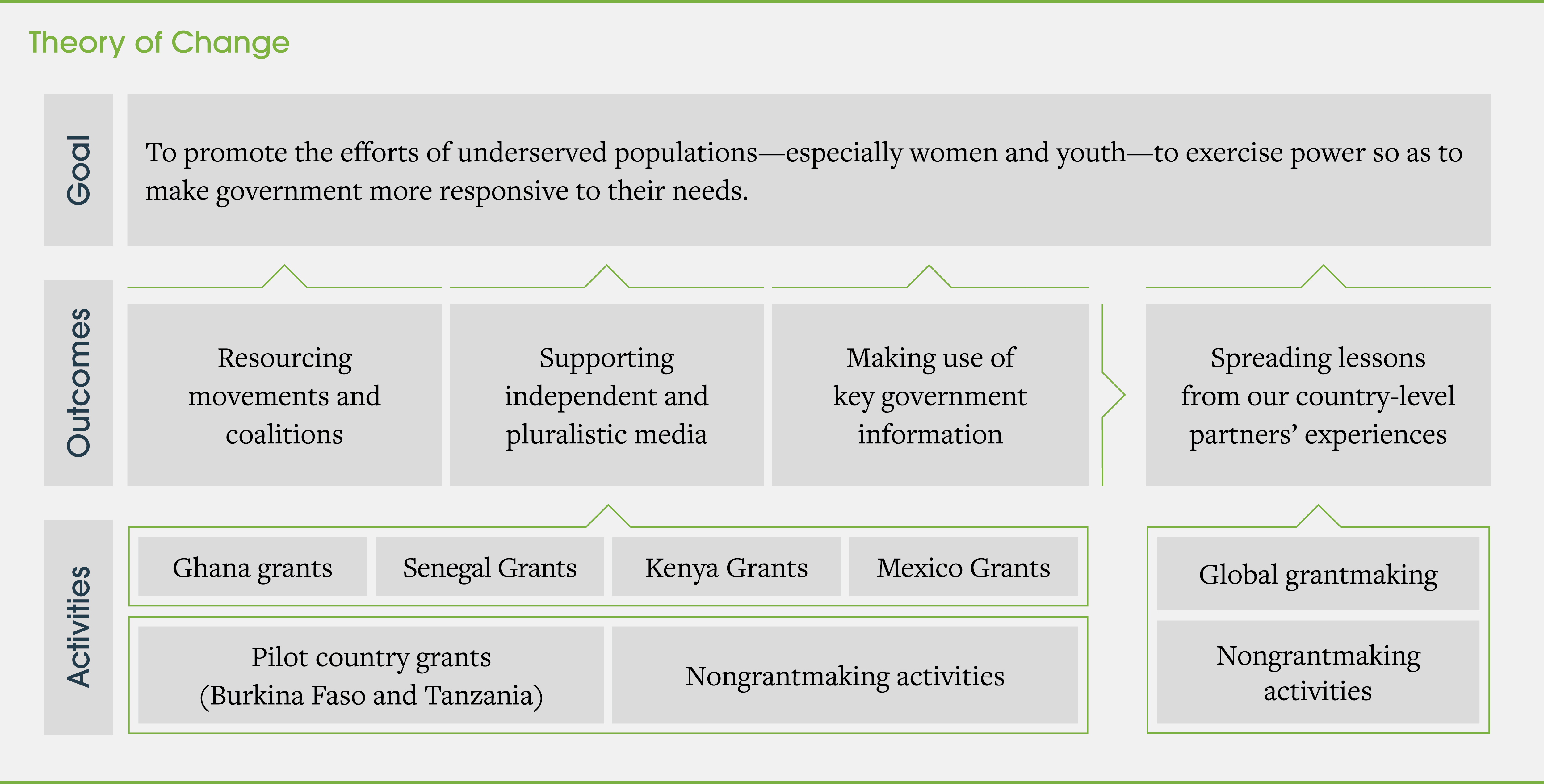Introducing our new Inclusive Governance Strategy

We celebrate the significant progress achieved by partner organizations over the past 20 years to make government information more accessible and provide new mechanisms for residents to engage with their governments. Thanks to their work, residents in a growing list of countries can access budgets, expenditures, contracts, audit reports, and other information from their governments. For instance, the governments of Mexico, Brazil, Ghana, and Kenya have implemented midyear budget reviews and increased citizen input into the budget process to improve their scores on the Open Budget Survey. In Colombia, Nigeria, and the Dominican Republic, governments have reformed their procurement practices to make contracting more transparent, inclusive, and accountable. Member countries of the Extractives Industries Transparency Initiative have committed to disclosing standardized information about the extractive sector, including gender-disaggregated data to better understand the different experiences of men and women.
However, while more information is available and citizens have new channels to seek responses from their governments, marginalized communities remain underserved. Even as governments become more open and participatory, they don’t necessarily become more inclusive and accountable. Paradoxically, as information has become more accessible and government officials more reachable, democratic institutions and human rights defenders are increasingly under attack. “In every region of the world,” begins a Freedom House report, “democracy is under attack by populist leaders and groups that reject pluralism and demand unchecked power to advance the particular interests of their supporters, usually at the expense of minorities and other perceived foes.”



